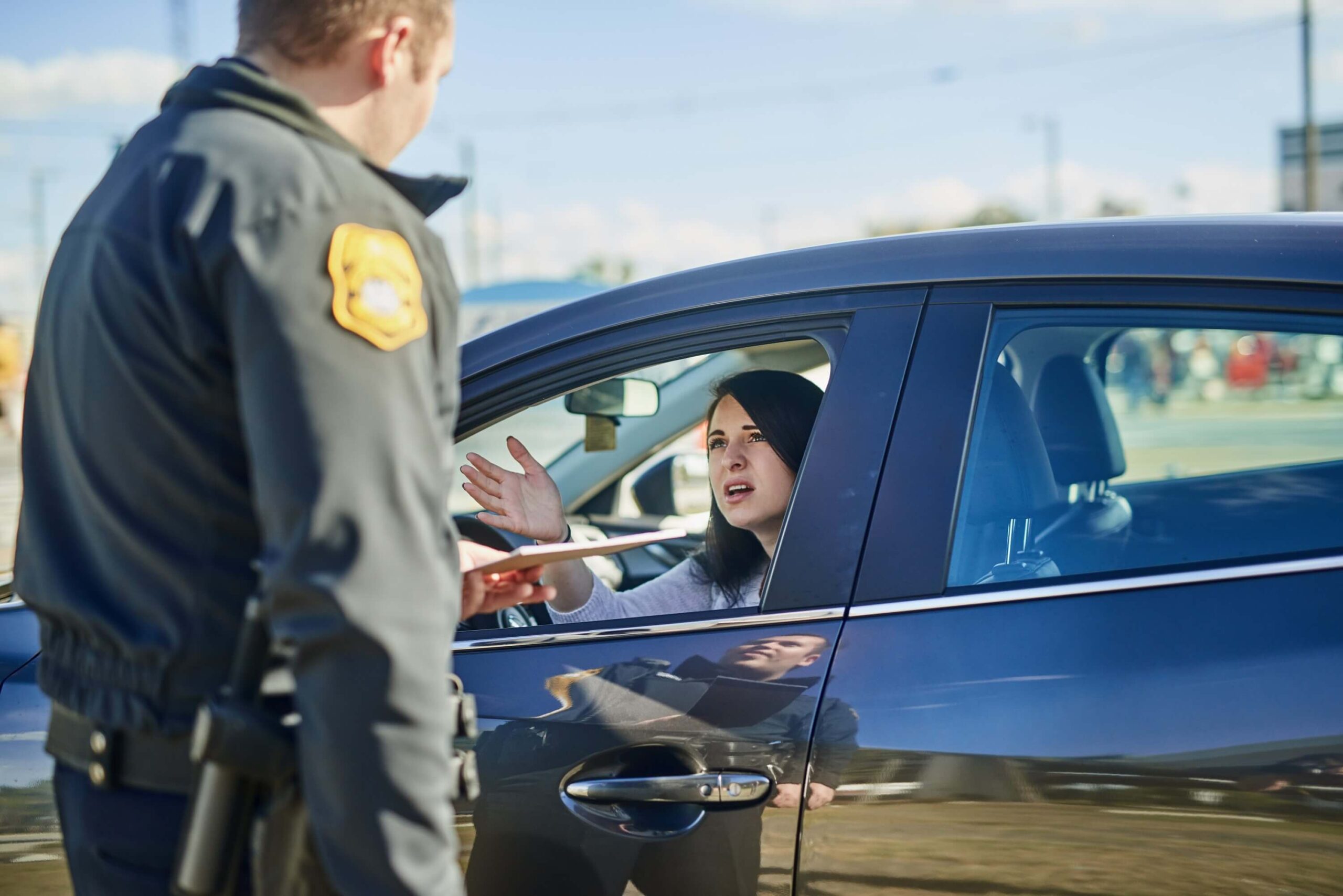Being involved in a car accident is a stressful experience, and the situation can become even more complicated if you are subsequently charged with Driving Under the Influence (DUI). Understanding the timeline and legal process for DUI charges post-accident is crucial for anyone facing this situation.
At the Law Offices of Michael Pignone, we’re dedicated to providing comprehensive legal services to those facing DUI charges. We provide experienced legal representation, guidance on handling DUI-related issues, and support throughout the legal process. Working with a Virginia DUI attorney after you’ve been charged with a DUI is crucial for building a strong defense—and we’re here to help you every step of the way.
Understanding DUI Laws in Virginia

In Virginia, DUI laws are stringent and aim to deter impaired driving to ensure public safety. A DUI is defined as operating a vehicle with a Blood Alcohol Concentration (BAC) of 0.08% or higher. However, you can also be charged with DUI if you are impaired by drugs or a combination of drugs and alcohol. The penalties for a DUI conviction can include fines, license suspension, mandatory alcohol education programs, and even jail time, depending on the severity of the offense and whether it is a repeat offense.
Timeline for DUI Charges After an Accident
The timeframe for DUI charges after an accident can vary significantly based on the circumstances surrounding the incident and the evidence available to law enforcement. In some cases, charges are filed immediately at the scene if law enforcement officers have sufficient evidence of impairment, such as the results of a breathalyzer test, visible signs of intoxication, or the presence of open alcohol containers in the vehicle. Immediate charges are more common when the evidence is clear and compelling.
However, there are instances where DUI charges are delayed. This can happen if the police need more time to gather evidence, such as waiting for blood test results or conducting a more thorough investigation. Blood tests, which are often used to determine the precise Blood Alcohol Concentration (BAC) or the presence of drugs, can take several days or even weeks to process. During this time, law enforcement may also be collecting additional evidence, such as witness statements, surveillance footage, or accident reconstruction reports.
In Virginia, there is no statute of limitations for DUI charges, meaning you can be charged at any time after the accident. This lack of a statute of limitations allows law enforcement to take the necessary time to build a strong case, but it also means that individuals may face charges long after the incident. Typically, DUI charges are filed within a few days to a few weeks after the accident, once all the necessary evidence has been collected and analyzed.
It’s important to note that the delay in filing charges does not necessarily indicate a weaker case. In fact, it often means that law enforcement is being thorough in their investigation to ensure that all aspects of the incident are considered. This thoroughness can work both for and against the accused, depending on the quality and nature of the evidence gathered.
If you find yourself in a situation where DUI charges are delayed, it’s crucial to remain proactive. Keep detailed records of the incident, including any interactions with law enforcement, medical treatments received, and any other relevant information. This documentation can be invaluable for your defense attorney in building a strong case on your behalf.
The Law Offices of Michael A. Pignone can provide guidance and representation during this uncertain time. Our team has handled thousands of DUI cases and we understand the complexities involved in delayed charges. We will work diligently to protect your rights and achieve the best possible outcome for your case.
Immediate Legal Actions Post-Accident
If you are involved in an accident and suspected of DUI, there are immediate legal actions that law enforcement may take. These can include field sobriety tests, breathalyzer tests, and the collection of blood samples. It is important to know your rights during this time. You have the right to refuse field sobriety tests, although this may result in immediate arrest. Refusing a breathalyzer or blood test can lead to automatic license suspension under Virginia’s implied consent laws.
Field Sobriety Tests: These are a series of physical and cognitive tests that law enforcement officers use to assess whether a driver is impaired. Common tests include the Horizontal Gaze Nystagmus (HGN), the Walk-and-Turn, and the One-Leg Stand. While you have the right to refuse these tests, doing so can result in your immediate arrest based on the officer’s observations and other evidence.
Breathalyzer Tests: A breathalyzer test measures the amount of alcohol in your breath and provides an estimate of your BAC. In Virginia, if you refuse to take a breathalyzer test, you can face immediate consequences, including automatic license suspension for up to one year for a first offense. Subsequent refusals can result in longer suspensions and additional penalties.
Blood Tests: Blood tests are often used to obtain a more accurate measurement of your BAC or to detect the presence of drugs. These tests are typically conducted at a medical facility. If you refuse a blood test, you will face similar penalties as refusing a breathalyzer test, including automatic license suspension.
Implied Consent Laws: Under Virginia’s implied consent laws, by operating a vehicle, you automatically consent to chemical testing (breath, blood, or urine) if law enforcement suspects you of DUI. Refusing these tests can lead to severe penalties, including license suspension and the use of your refusal as evidence against you in court.
Your Rights: It is crucial to understand your rights during this process. You have the right to remain silent and to request an attorney. Anything you say can be used against you in court, so it is often best to speak with a lawyer before providing any statements to law enforcement. The Law Offices of Michael A. Pignone can provide immediate legal assistance and guide you through these critical moments to ensure your rights are protected.
Delayed DUI Charges: What to Expect

Delayed DUI charges can occur for several reasons. Law enforcement may need additional time to gather and analyze evidence, such as blood test results, which can take several days to process. Additionally, if there are complications in the investigation, such as conflicting witness statements or the need for expert analysis, that can also delay charges. During this time, it is crucial to seek legal representation to prepare for potential charges and protect your rights.
Evidence and Investigation in Post-Accident DUI Cases
Collection of Evidence: The collection of evidence is a critical component of a DUI investigation. This can include physical evidence from the scene, such as open containers of alcohol, drug paraphernalia, or other signs of impairment.
Witness Statements: Witness statements can provide valuable information about your behavior and condition at the time of the accident. These statements can come from other drivers, passengers, pedestrians, or anyone else who witnessed the incident.
Police Reports: Police reports are official documents that detail the officer’s observations, the results of any field sobriety or breathalyzer tests, and other relevant information. These reports are often used as key evidence in DUI cases.
Legal Defenses Against Post-Accident DUI Charges
Challenging the Evidence: One of the primary defenses against DUI charges is to challenge the evidence. This can involve questioning the accuracy of breathalyzer or blood test results, the validity of field sobriety tests, or the handling and preservation of evidence.

Questioning the Timeline: The timeline of events can be crucial in a DUI case. If there was a significant delay between the accident and the collection of evidence, this can be used to question the reliability of the evidence.
Legal Rights and Protections: Understanding your legal rights and protections is essential. This includes knowing your rights during the arrest process, the right to legal representation, and the right to challenge the evidence against you.
The Role of a DUI Attorney in Post-Accident Charges
Initial Consultation: The first step in defending against DUI charges is an initial consultation with a DUI attorney. During this consultation, the attorney will review the details of your case, explain your legal options, and develop a strategy for your defense.
Case Preparation and Strategy: A DUI attorney will thoroughly investigate your case, gather evidence, and prepare a strong defense strategy. This can include interviewing witnesses, reviewing police reports, and challenging the prosecution’s evidence.
Court Representation: Having an experienced DUI attorney represent you in court is crucial. Your attorney will advocate on your behalf, present your defense, and work to achieve the best possible outcome for your case.
If You’ve Been Charged with a DUI After an Accident, Contact Our Law Firm
If you are charged with a DUI after an accident, or have questions about the legal timeline for DUI charges post-accident, contact our DUI attorneys today. Our team is dedicated to providing the support and guidance you need to navigate the aftermath of a DUI charge and achieve the best possible outcome for your case.

